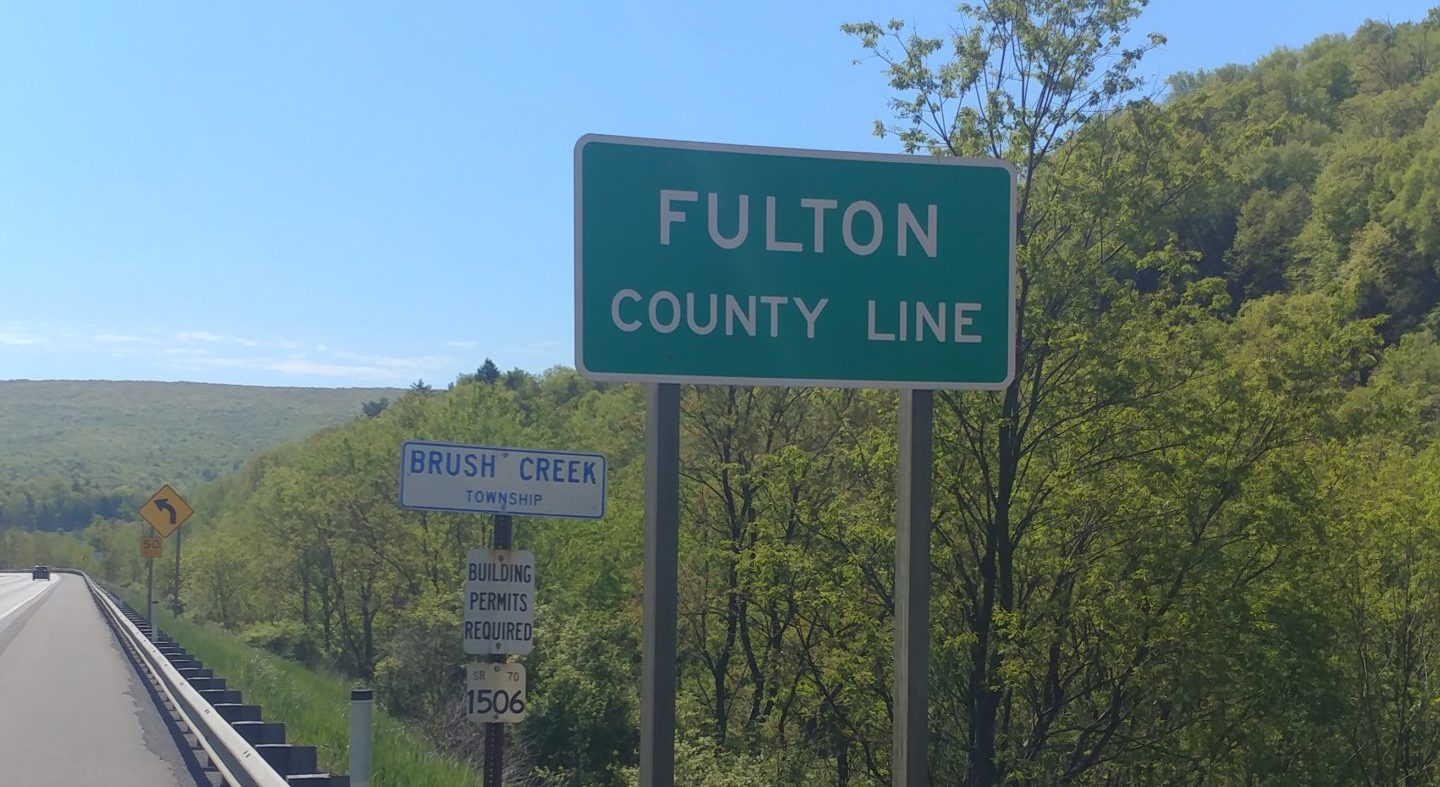The feature picture was taken on my return drive from my last trip to see Z. I’ve meant to take it for several trips now but only thought of it as I passed the sign. I was watching for the sign this time but noticed it too late to stop. Tired of missing it, I took the next exit and drove back two miles to get a chance.
Why would I care about taking a country sign picture in Pennsylvania? Well, it’s Fulton County which is more or less where I live. Atlanta, which occupies most of Fulton and part of Dekalb county, is home. Every time I drove by the sign, I laugh to myself about almost being home.
I wondered, after taking the photo, if they were named Fulton for the same reason. Both counties are named after Robert Fulton, the inventor of the steamship.
In fact, seven of the eight Fulton counties in America are named for Robert Fulton. The one that is not is Fulton County, Arkansas. It is named for the last governor of the territory of Arkansas, William S. Fulton.
Other names are more common for counties in the US. A Lincoln County exists in twenty-three states. Abraham Lincoln is not the namesake of all twenty-three. Several, including those in Kentucky, Maine, and Georgia, predate the birth of President Lincoln. Settlers in Maine named its Lincoln County for the city of Lincoln in England. Lincoln County, Kentucky, formed while the area was part of Virginia. The Virginia legislature named it after a Revolutionary War general, Benjamin Lincoln.
While not a county name, Springfield is ubiquitous as a town name. Over half the states, thirty, have at least one incorporated town or city named Springfield. A thirty-first state, Alabama, has an unincorporated area with that name. Wisconson and Virginia tie for the most incorporated Springfields at four, but Wisconsin breaks the tie with two unincorporated Springfields.
There are sixteen Bostons in twelve states. Over a third, six, grace the state of Ohio alone. The original is in England. Ireland has a pair, as does Canada.
Now, all this name trivia is find and dandy, but what good is it?
Well, list all the Lake-towns in Middle Earth. After all, “Lake Town” is a pretty generic name. There are at least two in this world, one in the US and one in India. Yet there is only one in Middle Earth. There is only one Prancing Pony to our knowledge.
I’m a bit hard on Tolkien. How many towns and inns do we see in Middle Earth? More modern fantasy epics name many more towns, inns, and other places, large and small, yet I can think of no repeats off the top of my head. Yet, when I travel to major cities, if I see a bar named Eagle there are good odds if it exists, it is a leather bar. The name is less common today as the bars slowly close, but there are at least thirty worldwide. Atlanta’s Eagle closed down in the past year. I even placed one in Hartford, CT, which to my knowledge never had one, in an unfinished detective novel because I needed a location for the last known location of a disappeared individual.
So, what is in a place name? More than you might think. Common placenames serve a purpose. For Fulton, they celebrate a figure prominent at the time of creation. For Lincoln, there are several sources. The first is the same as the Fultons, celebrate a famous figure. Another source is the memory of where the people who founded the town originated. For the name of a business, it is a way to signal “your people are here” when saying that out loud carries a risk. As a writer, instead of wracking your brain to think up endless unique names consider thinking up a common name with a history. They can serve multiple duties. Do you want to tell the story of a famous general? Have the characters encounter their third town named after him so one character can ask a question about it. Want to make it easier for the characters to hire a professional who can’t advertise? Why they tend to congregate in taverns called “The Porcupine’s Wallow.”
I mean, there is a reason why the all American town where the Simpsons live is called Springfield.


Be First to Comment